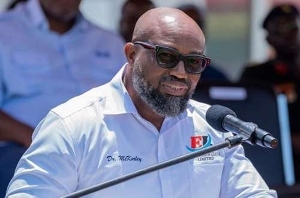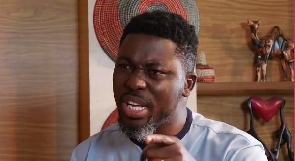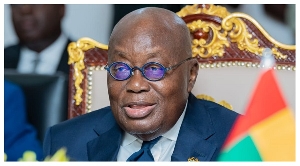Opinions of Sunday, 11 September 2011
Columnist: Sakyi, Kwesi Atta
Is ‘Dzi Wo Fie Asem’ Ghana’s New Foreign Policy?
By Kwesi Atta Sakyi
INTRODUCTION
Foreign policy refers to the way a country conducts itself in international relations and the consistent manner with which it will react to external events. Foreign policy is often based on precedence and also partially crafted by unfolding events as well as the economic and political circumstances at a particular time. It is, therefore, an evolutionary, dynamic and fluid process. There are, however, some parts of foreign policy which are constant or permanent and historical and other parts which are dynamic. It is, therefore, true to state that foreign policy neither departs too much from historical underpinnings, nor is it cast in stone. It is often bandied around in diplomatic circles that a country has neither permanent friends nor permanent enemies. It all depends on the situation. Therefore, there is no one best way to carry out this foreign policy. There is also no country, no matter how big, rich and awesome that can survive in isolation in a state of autarky or self sufficiency (closed system). We live in a world of complementarity, interdependence and supplementarity. Even the largest and most powerful nation on earth may at one time or another, need help from the poorest and tiniest entity. This is because of the uneven distribution of natural endowments around the world. A poor country today may suddenly become very rich tomorrow through the discovery of say oil, coltan, tantalite, uranium, diamonds or any rare mineral. For example in 1966 when Botswana attained independence, it was a very poor country and a desert. With the discovery and exploitation of diamonds, it is now one of the relatively richest countries in Africa. People who shunned it earlier on are now queuing to get visas to go there. Just as an individual goes through vicissitudes of life, so too does a nation. Eminent writers and academics have written a lot on what defines foreign policy. They include Hans Morgenthau, Reinhold Niebuhr, Karl Deustch, Henry Kissinger, and Zbigniew Brzezinski, Robert Dahl, among others. These scholars posit that foreign policy revolves around key concepts namely, self interest, power, morality and reciprocal relationships. Concepts like détente, realpolitik and shuttle diplomacy also surfaced. Power can be acquired from diverse sources such as inheritance, control over technology or expertise, control over both human and natural resources, geopolitical position, economic power, military power, among others( cf. Max Weber, Rensis Likert, Karl Deustch). Charles Darwin’s theory of evolution and natural selection informs us that there is a struggle among all beings for survival. In the Hobbesian world, it is survival of the fittest, where life is short, nasty and brutish. It is a world of adapt or perish. However, in this age and time, human institutions have evolved into highly defined civil procedures and protocols which guide our actions and require us being moral rather than amoral or immoral. Nations belong to many world groupings such as the UN, NATO, EU, OECD, ECOWAS, SADC, ACP, ASEAN, and COMESA, among many others. These multilateral and inter-governmental organizations have come up with many conventions, treaties, modalities and protocols which bind and circumscribe the behaviour of their members. Those members who fall out of step or breach the treaties/conventions are sanctioned. Therefore, national sovereignties are at crossroads with supranational institutions and there is need to seek compromises. As it is, a nation is sovereign and free up to a certain extent but not entirely free because it has to consider the implications and consequences of its actions on its neighbours and the whole international community. This is why for every crisis that arises, taking a stand takes time because the national think-tank and experts have to study the critical variables before they recommend any action. Thus, we need academics, diplomats, military experts, politicians, statesmen, lawyers and other professionals to chip in their input. Sometimes the nation which is faced with a delicate and complex dilemma may wait and see or apply a do-nothing option. In most cases, the best strategic option is a trade-off or compromise which leads to a win-win rather than a win-lose situation ( cf..Norbert Wiener, von Neuman’s Game Theory or Prisoners’ Dilemma). It may end up in logrolling, horse trading, and a series of reciprocal actions or tit-for-tat action. States which do not play ball become pariah nations like Somalia, Iran and North Korea. Where a powerful nation flexes its muscle, it may be a zero-sum game with a loser and a winner.
GHANA’S FOREIGN POLICY STANCE FROM A HISTORICAL PERSPECTIVE
From our first President, Dr Kwame Nkrumah, we have inherited part of our current Ghanaian foreign policy of Pan-Africanism. Africa is the centrepiece of Ghana’s foreign policy, hence our membership and support for the OAU (now AU). Nkrumah, by his speeches, defined the trajectory of Ghana’s foreign policy when at independence in 1957, he declared, ‘The independence of Ghana is meaningless unless it is linked up with the total liberation of Africa” At another time he said, “The African is capable of managing or mismanaging his own affairs. We prefer self-government with danger to servitude in tranquility”.Nkrumah had a dream for Africa of establishing the African High Command which would have dealt with cataclysmic imbroglios such as the stand-off in Libya, Ivory Coast, Sudan, Somalia, Ethiopia, Liberia and Sierra Leone. Nkrumah also was in the forefront of championing the course of the Non-Aligned Movement (NAM), along with leaders such as Josip Broz Tito of former Yugoslavia, Jawaharlal Nehru of India, Sukarno of Indonesia, and Gamal Abdul Nasser of Egypt. The NAM was a coalition which drove on a middle road astride the Cold War between the Eastern Bloc and the Western Bloc. In 1989, with the fall of the erstwhile Soviet Union under Gorbachev’s Perestroika and Glasnost, and the fall of the Berlin Wall, the Cold War ended the bi-polar world. Enter the unipolar world of one superpower, USA vis-a-vis a multipolar world of NATO, EU and other strategic alliances, be it political, regional and economic grouping or any other grouping for mutual benefit. Even though the NAM is dead, stumps of it remain and these with others drive the bilateral relations of Ghana with the former members of NAM. In 1975, the Economic Community of West African States (ECOWAS) was born in Lome as a political regional bloc in West Africa. Before that, we had the moderate Monrovia Group and the radical Casablanca Group. We also had OCAM (Afro-Malagasy Common Organisation) which grouped the former French colonies. One observer at the time said ‘Africa was dancing’ Ghana is still a member of the Commonwealth of Nations which is a grouping of Anglophone countries around the world. All these historical precedents affect and shape the current foreign policy of Ghana. During the 60s, Nkrumah indulged in eleemosynary economics (state largesse) by giving £10 million pounds each to Guinea and Mali. At that time, Ghana formed a trilateral alliance with these countries and it would have been the genesis of ECOWAS. former foreign Minister, Prof Abidemi Oluyemi, said that Nigeria was pursuing a foreign policy of concentric circles, meaning starting inward from Nigeria to Ecowas to OAU (AU) to Commonwealth, to the UN etc. In similar context, Prof John Atta Mills of Ghana is reputed to have “boo-booed” when he uttered, “Dzi Wo Fie Asem – Mind your domestic affairs’ during the Ivonian crisis. He was echoing nothing new because that is the core of the foreign policy of the USA. America’s interest first. It is said that charity begins at home. Without domestic stability, you cannot extend hospitality to foreigners. Ghana is famed for its proverbial hospitality to foreigners. However, at a point in time, it is important to reflect and take stock of your circumstances. We cannot continue the legacy of the eleemosynary economics started by our founder, Dr Nkrumah. Nkrumah might have had a megalomaniac geopolitical agenda of uniting all Africa. That mission has been almost accomplished, except for Western Sahara which is still under dispute. At that time, Ghana had financial muscle but not so now. Our oil flow of 85,000 barrels a day cannot match the stupendous 2.2 million barrels a day of our geopolitical neighbour, Nigeria. Even if we increase our daily output sixfold, that will still be less than a quarter of the output of Nigeria. Nigeria has also a population of a fifth of the whole of Africa, at 150 million. We can discern from this that Nigeria is an Ecowas superpower. No wonder Nigeria has played a leading role in dousing fires in our neighborhood. Ghana’s foreign policy is also driven by historical precedents. During the 60s, Nkrumah got a loan from the USA to build the Akosombo Hydro Electric Power Station and Kaiser Aluminium Plant at Tema. When the Peace Corps Volunteers was established, Ghana was the first African country to receive them. All these precedents shape our foreign policy towards our bilateral relations with the USA. Of course, Britain is our former colonial master and most of our educational, legal, civil, military and social institutions are modelled after theirs. Besides, the UK, USA, Netherlands, Switzerland Germany and other Western European countries are our leading trading partners for our cocoa, timber, gold, diamonds and other exports. These trade ties influence greatly our foreign policy as our umbilical cord is tied to theirs economically. Our relationship with Western Europe goes back many centuries(cf.Van Danzig). It is often said that when the American President sneezes, the whole world catches a cold. This is true because of America being the largest economy in the world. Traditionally, we depend on Europe and Japan for our cars and machinery and now China is coming up strongly to challenge the US. Strategically in geopolitics, they have a huge market and massive foreign reserves. China has drastically changed the international geopolitical landscape and the equation of the balance of power. Ghana is currently pursuing economic diplomacy of projecting the country as the hub of West Africa, one of the best destinations for inward Foreign Direct Investment (FDI), among other goals. This is a quiet diplomacy approach which does not call for making empty noises in international circles to scare away potential investors. It is very easy after champagnes at a cocktail party to make high-sounding political rhetoric which amount to nothing. Ghana, under Prof John Atta Mills, has adopted a pragmatic and low profile approach to foreign policy, sometimes taking a cue from our close partners. In Africa, Nigeria, South Africa, Kenya and Egypt are among the big time players. Libya has been downsized and it is a pity that one of our megaphones has been silenced. Without putting words in the mouths of our foreign policy shapers, we can say categorically that Ghana believes in a policy of live and let us live, mutual cooperation, good neighbourliness and the principles of the rule of law good governance and the promotion of the tenets of the 1948 Universal Declaration of Human Rights. I believe Ghana is still buying into what Nkrumah dubbed positive neutrality. I wonder what that means. Perhaps, gurus like Prof S.K.B Asante can inform us. Dzi Wo Fie Asem is therefore patently perfect in the right place because that is the policy of every progressive country in the world. The Scandinavians and Canada have a cradle-to-grave policy of looking after their citizens very well from birth to death through the welfare system. Dzi Wo Fie Asem accords well with that. A friend of mine in the 70’s used to joke in Pidgin English thus, ‘Outside gentility is home crying’.
Literarily, it means if you go out playing Santa Claus by giving out gifts you will eventually end up at home broke and find your children crying. Your wife may divorce and desert you. This is the import of Dzi Wo Fie Asem as the fulcrum and buttress of Ghana’s newly found foreign policy direction, as defined by Prof John Atta Mills. Ghana’s democracy at 50 years plus is still young by nationhood standards. To me, our foreign policy direction will stabilize after between 100 to 150 years from the time of independence. To all intents and purposes, our foreign policy direction will be shaped by our membership of the international community and the many treaties and conventions we are party to. Dzi Wo Fie Asem will continue to inform us that in all situations, self interest and self preservation is paramount in our foreign policy. According to Adam Smith’s-thesis in his 1776 treatise, An Inquiry or investigation into the nature and causes of the Wealth of Nations (Wealth of Nations), it pays for individuals to be selfish an acquiring wealth so that in the long run, it redounds on the good of society. Well, I have my reservations on that as an economist. Borrowing a leaf from this, think our LSE-trained and Stanford Fellow, Prof John Atta Mills re-echoed Adam Smith’s long standing capitalist ideal by uttering correctly, ‘Dzi Wo Fie Asem’ (Mind your own domestic affairs). Thinking aloud for President Atta Mills and in a soliloquy, he seems to be saying, ‘Ghana, mind your own domestic business first and when you are stable, you can extend a hand to the neighbours.’ Hmm, this is food for thought and some pregnant pause to chew on. In that case, whether we pursue an outward-oriented foreign policy or an inward-oriented policy approach, ‘all die be die’ since they are all sides of the same coin. Nana Akuffo Addo was also not too wrong when he made that Rawlingsque boom utterance.
Dr K A Busia assumed office in 1969 and he declared, “Kafo dzidzi” (the debtor must eat), in reference to pressure from our external creditors to pay up our debts. Lt Gen Kutu Acheampong assumed office in 1972 and he declared, ‘Yentua’ (we shall not pay), referring to not honouring our mounting external debts. Luckily, under ex-President John Kufuor’s term of office, the creditor nations cancelled most of the debts of the LDCs or Third World countries. Kufuor engaged in shuttle diplomacy, criss-crossing the globe and visiting many global capitals to promote Ghana’s interest. For Prof John Atta Mills, our current President, he prefers to stay at home and has delegated the shuttle diplomacy to his Vice President, John Mahama, who criss- crosses global capitals. Foreign policy is, therefore, also shaped by the style, personality, utterances, actions and inactions of those who populate the corridors of power. The foreign policy of the USA for instance was shaped in 1947 by President Harry Truman’s Truman Doctrine of rolling back communism and the USA not entertaining the thrust of communism on weak states. In the 19th century, President Monroe declared his Monroe Doctrine that the USA will consider any European encroachment on any of its territories, notably Texas and Florida, as an act of aggression. Abraham Lincoln in his famous Guttenberg speech declared, ‘…that government of the people, by the people and for the people shall not depart this earth’. By his famous speech, he laid down the standards by which the USA will deal with other nations and this forms the bedrock of US foreign policy.
Kwesi Atta Sakyi BA( Hons) Ghana, MPA(cum laude) Unisa, NDP(Distinction)Unisa, Group DIP.(Distinction) Jersey, Cert. A 4 Yr.












